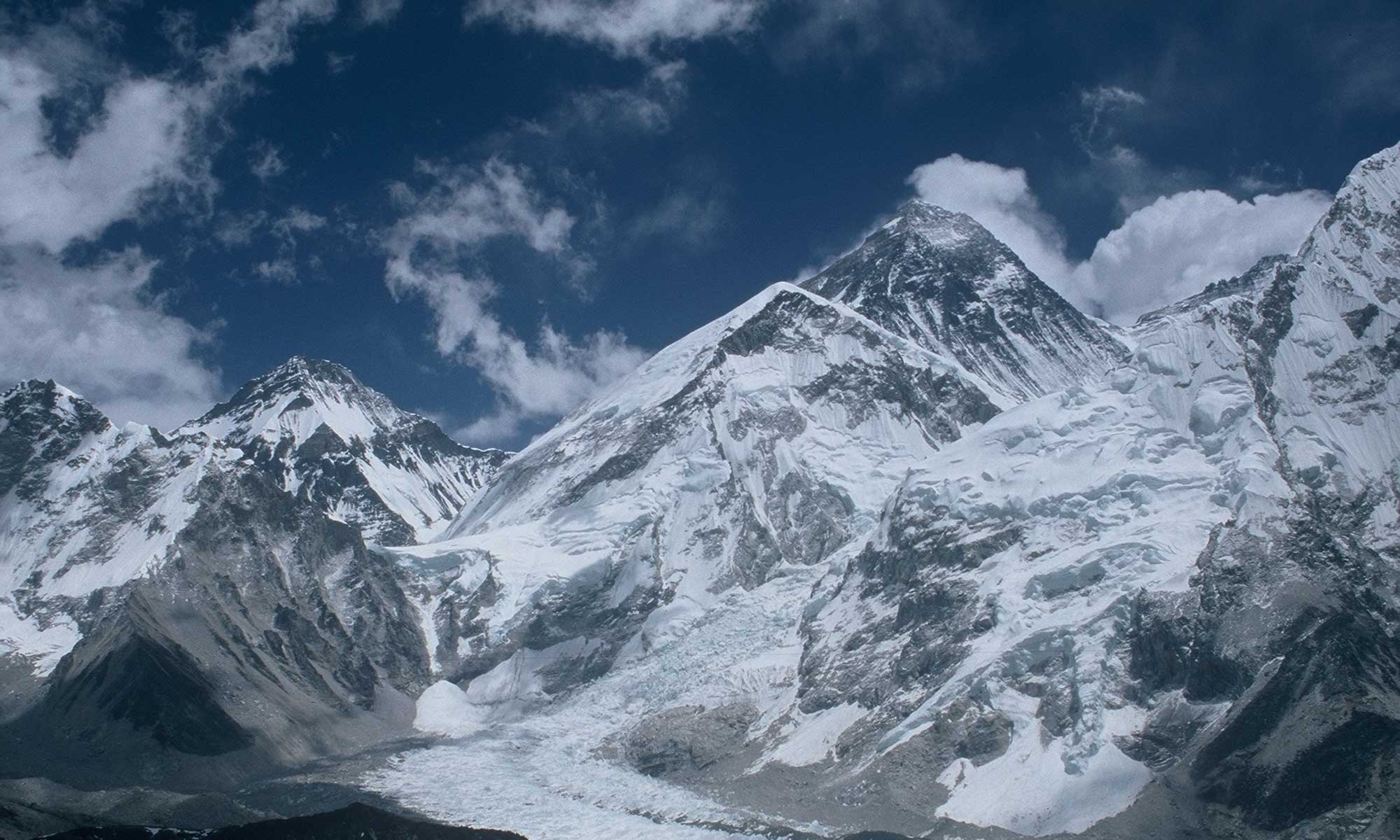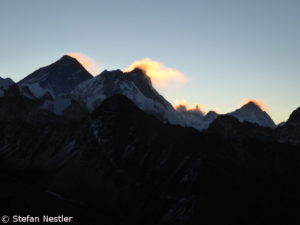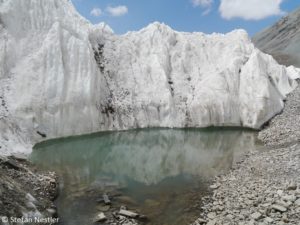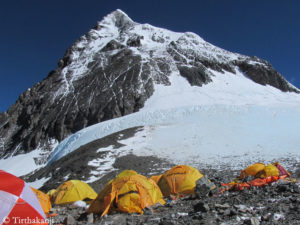High-ranking visitor to the world’s highest mountains. António Guterres, Secretary-General of the United Nations, was in Nepal this week to see for himself the consequences of climate change in the Himalayas. The Portuguese made a detour to the Everest region and the base camp on the south side of the eight-thousander Annapurna I and was informed by locals – including mountaineer Dawa Steven Sherpa, WWF ambassador for climate change – about the effects of rising temperatures.
“I am here in the Himalayas where glaciers are melting at a record level. Like in Greenland, like in Antarctica. Sea levels are rising,” said Guterres in Khumbu. ” And here we see floods, we see landslides, we see communities being dramatically impacted. We must stop this madness.”
Rapidly shrinking glaciers
Scientists and environmental organizations have been sounding the alarm for years. According to a study published last summer by the International Centre for Integrated Mountain Development (ICIMOD), glaciers in the Hindu Kush, Karakoram and Himalayas are expected to shrink by 30 to 50 percent by 2100 – given a temperature increase of between 1.5 and two degrees Celsius compared to pre-industrial times. Scientists currently assume that temperatures could even rise by 2.4 to 2.7 degrees Celsius by the end of the century.
Everest South Col free of ice by 2050?
Mountaineers have also been reporting on the changing conditions on the world’s highest mountains for years: extremely high temperatures even at high altitudes, unpredictable weather, rock passages where there were once snowfields, more blue ice, more avalanches, more rockfall.
Scientists at the University of Maine in the USA calculated in 2022 that the South Col of Mount Everest could be completely ice-free by 2050. This seems marginal compared to the expected consequences for people in the lowlands. The melting glaciers in the Himalayas and other mountain ranges around the world threaten the water supply of more than 1.6 billion people, said the scientists from Maine.
“Don’t retreat, move forward”
It’s more like five past than five minutes to midnight. UN Secretary-General Guterres agrees. “We must make sure that we limit temperature rise to 1.5 degrees,” Guterres demanded in Nepal. “Glaciers are retreating. We cannot retreat. We must move forward with climate action.”



